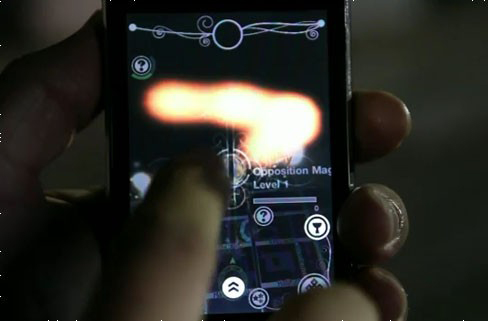手机定位游戏《Shadow Cities》称雄芬兰App Store
从早期瑞典的《Bofighters》到日本的《Samurai Romanesque》手机游戏,以及Gizmondo公司效仿《GTA》、《Pokemon》风格的手机定位游戏计划的失败,这些迹象均可证明这类游戏的生存之艰,它们不但很难建立有效的运营模式,而且不易形成足够规模的用户群体。
不过智能手机时代的来临却可以解决类似的多种难题。像Foursquare、MyTown和Gowalla这些地理定位服务应用的成功运营,引来了大众和风险投资者的关注,而《Fable III: Kingmaker》、《gpsAssassin》、《Parallel Kingdom 》、《1000: Find ‘Em All!》等游戏的问世,也证实开发手机定位游戏的技术条件已经成熟。
芬兰游戏工作室Grey Area似乎已经解决了技术性问题,因为它的手机定位及MMORPG游戏《Shadow Cities》初战告捷,至少目前已在芬兰App Store将《愤怒鸟》(Angry Birds)赶下了冠军宝座。
该公司首席执行官Ville Vesterinen表示,“这款游戏更多是针对整个城市的定位,而不仅仅是确认个人所在位置……大家都有各自的文化,用户在工作、在家或与友人外出时的地点都不相同,我们希望通过《Shadow Cities》创建基于地理定位的社交关系。”
当然,芬兰及其首都赫尔辛基的用户都早已享用到了这类地理定位服务,因为这一地区正是手机巨头诺基亚的势力范围。
但比较意外的是,Grey Area的中坚力量却来自诺基亚曾经的手机及电信竞争对手—-瑞典爱立信,据Vesterinen所称,“我们公司成立于2008年,由三个狂热的游戏分子一手创办,他们原来在爱立信负责关于手机代码的技术性工作,我在去年夏天加入了这个团队,我们从那时候开始正式向游戏领域进军……我对城市景观非常着迷,认为通过问路指路,人与人之间可以建立新的社交关系。”
不过,《Shadow Cities》在芬兰这种面积较小、高教育水平、社会联系紧密的国家,以及赫尔辛基这种城市中会受到欢迎,并不意味着它在幅员更辽阔、含多元文化、具有更大市场潜力的英国和美国也能复制这种成功。
不过作为一款免费游戏,《Shadow Cities》采用了内置付费功能的,这一点倒很符合市场的主流趋势。
该游戏在技术上还使用了开源数据,可以在任何地点立即激活,但如果要保证最佳游戏体验,该游戏每到一个国家都必须进行更新,增加一些特定的游戏道具。
尽管这款游戏目前仅在芬兰App Store提供下载服务,但不少芬兰人到了纽约、伦敦后还会玩这款游戏,虽然它们并非游戏官方支持的服务地区。
Vesterinen表示,“我们从玩家那里听到好消息之一就是,他们甚至不舍千里,专门跑到其他地方,或者走不同的路去上班,只是为了能在指定地点玩这款游戏。”还有用户在微博上宣称,正考虑买一部iPhone手机以方便玩这款游戏。
据Vesterinen所称,游戏在人口密度高的地区运行效果更理想,但也有一些人更愿意在人烟稀少的地区建设自己的基地,这样他们的基地就不会被轻易摧毁,然后就可以为争夺主导权展开攻势。
至于《Shadow Cities》将如何推向更广大的市场,这一点也已经成为Vesterinen关心的头等大事,他表示扩大公司规模是他们面临的挑战之一,所以目前正在快速展开招聘工作。
预计这款游戏将于12月进军瑞典,随后会在2010年底或2011年初出击英美两国市场。相信到那时大家就知道,《Shadow Cities》究竟是一个成功的手机定位游戏案例,还是又一款难以取悦全球用户的试验品。(本文为游戏邦/gamerboom.com编译,转载请注明来源:游戏邦)
Grey Area CEO Ville Vesterinen on building out the success of location-based Finnish hit Shadow Cities
There have been plenty of attempts to get location-based mobile gaming to work.
But from the early days of Botfighters in Sweden, to Japanese game Samurai Romanesque and Gizmondo’s ill-fated and ambitious plans for GTA and Pokemon-style location games, it’s proved difficult to hook efficiently into the necessary infrastructure, work out a viable business model, and attract a large enough concurrent user base.
The smartphone era has solved many of these issues however.
Apps such as Foursquare, MyTown and Gowalla have gained mainstream attention and VC funding, while games such as Fable III: Kingmaker, gpsAssassin, Parallel Kingdom and 1000: Find ‘Em All! have demonstrated technical functionality, if not yet overwhelming commercial success.
Finnish outfit Grey Area seems to have solved the latter problem though; at least to the extent of knocking Angry Birds off the #1 top grossing spot on the Finnish App Store with its location-based MMORPG Shadow Cities.
“There’s more to a city than checking into individual locations,” explains CEO Ville Vesterinen.
“Neighbourhoods have their own culture, and people experience their location differently in terms of whether they are at work, at home, or out with friends. The social relationship of place is what we’re looking to tap into with Shadow Cities.”
Point of origin
Of course, Finland and the residents of its capital city Helsinki, are experienced in such practices thanks to the presence of giant mobile company Nokia, as well as a niche but dedicated real-life role-playing community.
Yet, the origins of Grey Area come from Ericsson, Nokia’s one-time handset and teleco rival from neighbouring Sweden.
“The company was set up in 2008 by three guys, avid gamers, who worked on very technical stuff like cell nodes at Ericsson,” Vesterinen says of Grey Area. “I joined them in the summer of 2009, and we really pushed the game forward from that point.
“I’m fascinated by the cityscape: the way location can initiate new social relationships.”
Hit the ground running
Success in a small, highly educated and tight-knit country like Finland – or more specifically Helsinki, where most players are – isn’t proof that a location-based game will be successful in much larger, diverse and important markets such as the UK and the US.
But, as a free game, funded by in-app purchases, Shadow Cities is well set up in terms of current market mores.
It also uses open source location data so, technically, can be rolled out anywhere immediately, although to ensure the best experience, per country editing is required in terms of adding game-specific items.
Still, despite the game only being available on the Finnish App Store, Finns who have downloaded the game are already playing Shadow Cities in locations such as New York and London, although they’re not officially supported.
“It’s one of the great things we hear from players, is that they’ve taken a different route to work, or even driven hundreds of kilometers to play the game,” says Vesterinen.
People have even tweeted they’re considering buying iPhones to play it.
Building out
“The dynamicism of densely populated locations obviously works well, but we’ve also found people happy to set up their bases in more sparse places, where they can’t be easily destroyed, and then fight for control over central locations,” Vesterinen says.
As for the wider issue of how Grey Area will roll out Shadow Cities into those all important larger markets, that’s something sitting at the top of the CEO’s inbox.
“Scaling up our company definitely poses its own challenges,” Vesterinen explains; unsurprisingly Grey Area is currently recruiting fast.
It expects to launch in another small country (thought to be Sweden in December), and then tackle the key US and UK markets in very late 2010 or early 2011.
Then we’ll gain a better view whether Shadow Cities is the real deal, or another pretender in a long line of location-based mobile games that haven’t quite managed to connect with a global audience.(source:pocketgamer)









































 闽公网安备35020302001549号
闽公网安备35020302001549号